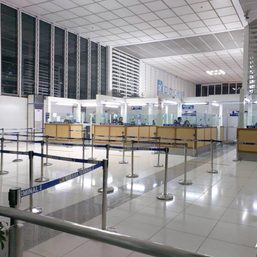SUMMARY
This is AI generated summarization, which may have errors. For context, always refer to the full article.
The Supreme Court voted unanimously to grant all benefits to the widow of the late ousted chief justice Renato Corona, and in doing so made a strong statement that Statements of Assets, Liabilities, and Net Worth should not be used as “a political weapon for vendetta.”
“For the future’s worth, it is herein stressed that the SALN is a tool for public transparency, never a weapon for political vendetta,” said the Supreme Court in a January 12 decision, released just recently.
The decision was penned by Associate Justice Ramon Paul Hernando, and got 13 unanimous votes (newly-appointed Justice Jhosep Lopez was not yet on the Court at the time.)
The Supreme Court ruled that Corona was deemed to have “involuntarily retired,” and added that an ouster via impeachment was not a judicial sentence. Therefore, the Court said Corona was never held judicially “liable for acts or crimes that would warrant the automatic denial of his entitlement” to benefits.
Republic Act 9946 gives retirement benefits if a justice or a judge “who has rendered at least fifteen (15) years service in the Judiciary or in any other branch of the Government, or in both, (a) retires for having attained the age of seventy years, or (b) resigns by reason of his/her incapacity to discharge the duties of his/her office.”
The Supreme Court interpreted the wording of Republic Act 9946 as mainly requiring the beneficiary to be a member of government for at least 15 years, which Corona was.
The Supreme Court decision only discussed how eligible Corona’s widow, Ma. Cristina, was to get the benefits. It did not delve into the merits of the Senate impeachment court’s findings of betrayal of public trust, which led to ousting of the former chief justice.
Cristina Corona also did not seek the reversal of the Senate’s ouster.
Yet the justices made a statement about SALNs, even saying that “ouster by impeachment is a stunning penalty for it ruins a life.” Corona was ousted over non-disclosure of peso and dollar deposits in his SALN.
“The Filipino people live, toil, and thrive in a democracy, but the rule of law should not stand parallel to the rule of the mob,” said the decision. Corona was ousted at the time of the Aquino presidency when he was seen to be tied to former president Gloria Macapagal Arroyo, who appointed him.
In the shadow of the Sereno ouster
This view on SALNs, however, stands in the shadow of the quo warranto ouster of Corona’s successor, former chief justice Maria Lourdes Sereno, who was kicked out of office via an unprecedented decision of 8 of her colleagues on the bench winning against 6 dissenters.
Of the 8 concurring votes in the Sereno ouster, only Chief Justice Diosdado Peralta and Associate Justice Alexander Gesmundo sit on the bench. Others were dissenters, and the rest are new, including Hernando the ponente.
“Toe this line (rule of the mob over rule of law), and the nation may eventually behold the laws that the Courts have forever sworn to uphold battered and bent,” said the Supreme Court in this Corona decision.
In comparison, the Sereno quo warranto ouster was called by dissenters as a “legal abomination” and “suicide without honor,” among others.
The Corona decision is consistent with the Supreme Court’s institutional view on SALNs. It restricted the release of SALNs after Corona, a move to protect justices and judges from harassment.
It denied the request of the Solicitor General to get the SALNs of Associate Justice Marvic Leonen. The SALN request was for the purposes of initiating quo warranto proceedings against Leonen.
And as revealed by Leonen during oral arguments on the anti-terror law last week, the Supreme Court also junked a legal challenge to Ombudsman Samuel Martires’ memorandum restricting the public release of SALNs of executive officials including the President’s. (The Supreme Court has yet to give full details of this decision.)
How to reconcile
Reporters had asked Peralta last year how the judiciary reconciled this institutional view of SALNs with the way they decided in the Sereno ouster.
“If you have some interpretations about that, it’s up to you, but we just follow the existing rule,” was Peralta’s short answer. (READ: EXPLAINER: The Supreme Court and the SALN challenge)
Sereno was ousted because majority found that her non-filing of SALNs equated to a lack of integrity. Integrity is a constitutional requirement to be a member of the Court.
“I don’t think it can be reconciled, quite honestly,” Constitutional Law professor and political analyst Tony La Viña told Rappler in an earlier interview for the Law of Duterte Land podcast.
“In terms of principle, yes (it’s an irony),” La Viña said.
Also, in June 2018, a month after the Court ousted Sereno, it issued a decision that set the prescriptive period of Republic Act No. 6731 – the Code of Conduct for Public Officials which governs the filing of SALNs – at 8 years.
Sereno’s allegedly non-filed SALNs went beyond 8 years.
Did the Supreme Court equate Sereno’s SALN issue to an issue of integrity grave enough to oust her, then go back to a view of not glorifying SALNs after she was gone?
“In the preservation of our democratic rights, it is the Supreme Court that truly holds the door, that actually decides everything, to balance everything out, and protect the interest of individuals against the interests of government. In this case, while it may be seen as protecting themselves, it is actually a correct decision towards independence from the executive government,” former Integrated Bar of the Philippines (IBP) national president Abdiel Dan Elijah Fajardo said in an earlier Rappler Talk interview.
Listen to this episode of the Law of Duterte Land podcast: Supreme Court and the SALN challenge. – Rappler.com
Add a comment
How does this make you feel?








There are no comments yet. Add your comment to start the conversation.